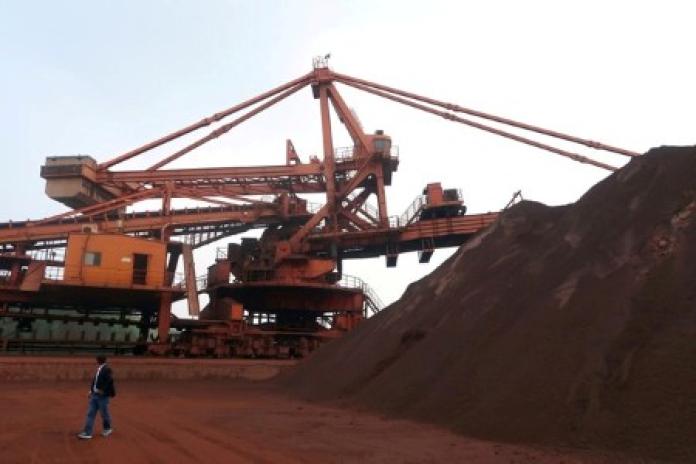Dalian and Singapore iron ore futures fell on Tuesday as traders weighed fresh COVID-19 flare-ups in China and weak steel demand, particularly from the country’s ailing property sector.
The most-traded iron ore, for delivery in January next year, on China’s Dalian Commodity Exchange DCIOcv1 was down 1% at 726 yuan ($107.53) a tonne, as of 0629 GMT. It hit its highest since Aug. 1 at 755 yuan earlier in the session.
On the Singapore Exchange, the steelmaking ingredient’s front-month September contract SZZFU2 fell 1.1% to $110.40 a tonne, after advancing in the past two sessions underpinned by improved steelmakers’ margins in China.
Analysts said any gains for iron ore would be limited given nagging concerns about the financial crisis engulfing Chinese property developers, COVID-19 lockdowns, and output curbs in the world’s biggest steel producer.
Parts of Tibet are running mass COVID-19 testing, including the Chinese autonomous region’s two largest cities, to fight a rare flare-up, while clusters were growing in tropical Hainan and in Xinjiang in China’s west.
Higher iron ore prices may also hinder plans to restart more blast furnaces in China that have been idled due to the recent downturn in steel profitability.
In recent weeks, some of those facilities have resumed operations as steel demand from the key construction sector picked up, lifting prices and margins.
“If the raw material rises too fast, it will inhibit the resumption of production by steel mills,” Zhongzhou Futures analysts said in a note.
A power shortage in China’s Zhejiang province, meanwhile, disrupted blast furnace operations there, they said.
Construction steel rebar on the Shanghai Futures Exchange SRBcv1 was up 0.1%, while hot-rolled coil SHHCcv1 slipped 0.1%. Stainless steel SHSScv1 slumped 2.7%.
Dalian coking coal DJMcv1 rose 2.6% and coke DCJcv1 climbed 3%.
Source: Hellenic Shipping News






